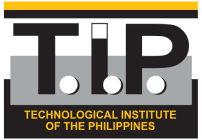

The Bachelor of Science in Business Administration Major in Financial Management program prepares the graduate for various careers in Financial Management as well as in related fields, including but not limited to, corporate finance, investment management, banking, credit, trust operations, insurance, foreign currency markets, money markets, capital markets, and other financial securities markets.
The curriculum provides the graduate with knowledge of financial institutions and technical skills based on established financial theories, methodologies, and various analytical tools. It also promotes an outlook that is based primarily on ethics, market integrity, regulations, good governance, and a competitive global perspective, necessary for effective financial decision-making.
Finally, embedded into the program are 600 hours of Internship Program. The Internship program integrates the theory and knowledge of course content with the application of principles and practices in a work environment. It allows students to apply theories learned in school to actual work experience where they could find a learning cohesion between school and employment. It helps expand learning options beyond the traditional classroom environment
Recognitions:
From the ASEAN University Network-Quality Assurance (AUN-QA)
From CHED: Center of Development (COD) in Business Administration
From PACUCOA: Level III First Reaccredited Status in Business Administration
PROGRAM EDUCATIONAL OBJECTIVES
Three to five years after graduation, the Bachelor of Science in Business Administration alumni shall:
- have advanced their practice or achievement in the field of Business Administration and/or other endeavors or advocacies supported by their acquired business education;
- strive to be globally competitive through
- living by the T.I.P. mission values, pursuing continuing education, and practicing continuous quality improvement (CQI) in their personal lives;
- continuously scanning, adopting and building on the best practices in their field.
STUDENT OUTCOMES
Under the 2018 curriculum, Expected Learning Outcomes (ELOs)/Student Outcomes (SOs), developed in alignment with the Institutional Intended Learning Outcomes (IILOs) or Graduate Attributes, consist of the following:
By the time of graduation, BSBA-Financial Management students will be able to:
- apply knowledge of business concepts and principles using knowledge and technical proficiency to solve business issues and problems in a global and strategic perspective;
- communicate business ideas and information effectively both in oral and written forms;
- use information and communication technology in generating business reports and making decisions;
- apply principles of ethics and commit to professional ethics and responsibilities
- function effectively as an individual and as a member or a leader of a diverse team in a multi-disciplinary settings;
- conduct research through independent studies of relevant literature and appropriate use of business theories and methodologies;
- preserve and promote “Filipino historical and cultural heritage” (based on RA 7722);
- recognize the need for, and prepare to engage in lifelong learning.
On the other hand, the following Expected Learning Outcomes/Student Outcomes were adopted effective SY 2023-2024.
By the time of graduation, BSBA-Financial Management students will be able to:
- Propose a solution to business problems in a real-world setting using foundational concepts, theories, and principles of business
- Communicate business ideas and information effectively both in oral and written forms
- Use information and communication technology tools in accurately presenting business-related reports
- Apply principles of ethics and commit to professional ethics and responsibilities
- Function effectively as an individual and as a member or a leader of diverse teams in a multidisciplinary setting
- Create innovative business ideas that preserve and promote Filipino historical and cultural heritage
- Apply creativity, innovation, and critical thinking in developing new business ideas and engage in independent and lifelong learning
- Conduct research through independent studies of relevant literature and appropriate use of financial management theories and methodologies
- Gain real-life experience through immersion in a corporate/operational environment related to investment, credit facilities, insurance, and equity market




